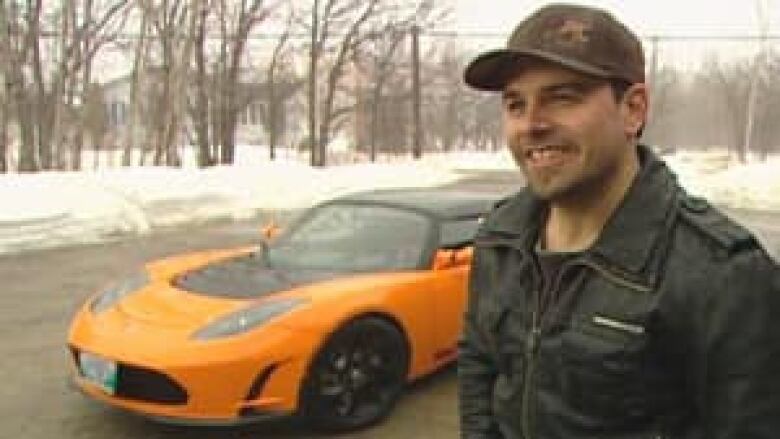Manitoba left in dust of electric vehicle times
Nissan delays 'Leaf' car here due to lack of agreement on electric-car infrastructure
Canada may be on the verge of an electric vehicle revolution, but Manitobans may have to wait a little longer.
Nissan Canada says it will delay its rollout of the much awaited fully-electric Leaf-branded car in Manitoba because it does not have an agreement with the province on plug-in charging stations.
'Manitoba will get the Leaf one day or another.' —Didier Marsaud, Nissan Canada
"No specific plans for Manitoba, as Manitoba has not made any announcements related to infrastructure support for (electric vehicles). Plans for bringing the Leaf to Manitoba are still being evaluated," wrote a spokesperson for Nissan Canada in an email.

"Manitoba was not one of the key priorities," said Didier Marsaud, senior manager of corporate communications at Nissan Canada. "But for sure, Manitoba will get the Leaf one day or another."
The charter chairman of Manitoba Electric Vehicle Association (MEVA) says he's not impressed.
"I'm not okay with that at all," says Dave Connell.
The new association says Manitoba already has key advantages for launching electric cars. Connell notes the province already has a 'plug in culture' because of our use of block heaters, and Manitoba also has an abundance of clean hydroelectricity.
Other provinces, for instance, rely on coal or natural gas for electricity — both fossil fuels — that some critics suggest defeats the green purpose of driving electrics.
"I don't think they realized that we have 'charging stations' here, and I quite frankly want MEVA to go to bat to get Nissan to change their mind."
"I can plug my electric car into my house, I can plug my electric car at my work, in parking lots and so on. Most places in Manitoba have electric plug-ins, and that's all you require in order to top up."
Sparking this auto revolution is a believe by some that gasoline prices will only climb higher due to a phenomenon called "peak oil" - the idea that world oil fields will max out, and cause petroleum fuel prices to soar.
To prepare, MEVA has a set goal for Manitoba to have 4,000 electric cars on the road by 2015 — a number of cars proportional to President Barack Obama's goal in the US, to see one million electric cars on the road in that country.
Hydro OK with electric load
Manitoba Hydro has long said it can easily handle the increased load triggered by thousands of Manitoba motorists charging up their cars instead of gassing up.
The province says it's working on ways to electrify Manitoba's transportation system, but no specific announcements have been made. Manitoba's rebate for buying hybrid electric vehicles expired last fall.
MEVA hopes it will restore the rebate and add fully electric cars to the program, such as the Leaf, or the Chevrolet Volt.
Ontario already offers purchasers of new electric vehicles a rebate of between $5,000 and $8,500.

"We need charging stations, right? We don't have charging stations in the province right now."
Most electric cars are designed to charge up on a typical 120 volt plug-in over several hours, but the cars can charge faster if they have 220 volt plug like what a household dryer uses.
Vancouver, for instance, plans to have 220 volt fast charging plug-in stations throughout the city.
Though he can charge at home and drive for more than 300 kilometres before topping his car up, Bilous says the province should look at "strategic charging stations" in locations such as Gimli, Falcon Beach, and other areas just outside the city.
"Hey — you're going to go to Gimli for the day, why not have a charging station up in Gimli? Or [the] Half Moon [restaurant], or Skinners, or places like that, anywhere you might go for a Sunday drive."
